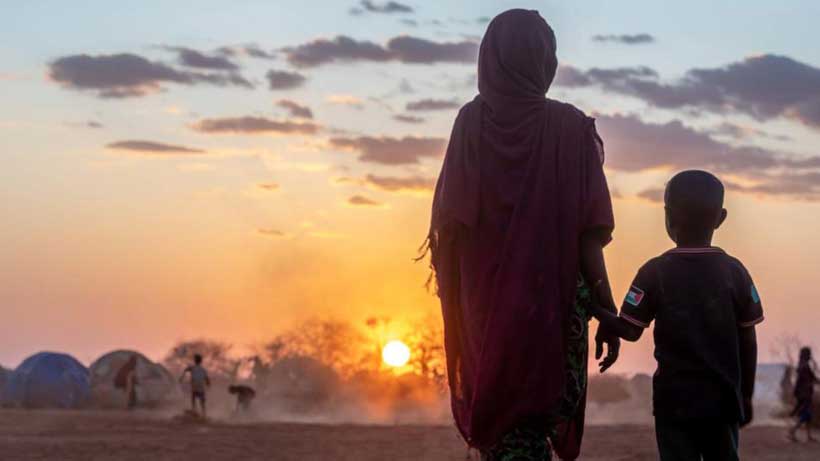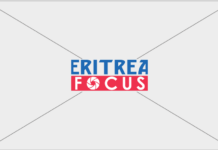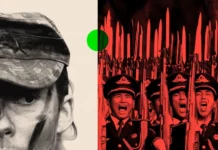Source: Modern Diplomacy
In the Horn of Africa, a dangerous actor continues to operate with impunity. Eritrean President Isaias Afwerki—Africa’s longest-serving and most repressive ruler—has built a career on war, repression, and regional destabilization. Yet in recent years, international attention has waned, giving his regime room to operate unchecked. That silence must end.
For over two decades, Eritrea and Ethiopia were locked in a cold war following the bloody 1998–2000 border conflict that killed tens of thousands. A state of “no war, no peace” persisted—until 2018, when newly appointed Ethiopian Prime Minister Abiy Ahmed extended an olive branch to Asmara. In a dramatic and highly publicized reconciliation, Abiy and Isaias signed a peace agreement that helped earn Abiy the Nobel Peace Prize in 2019. Families separated by war were reunited. Borders opened. The world applauded.
But behind the scenes, the rapprochement was built not on a vision for lasting peace, but on mutual enmity toward a common adversary: the Tigray People’s Liberation Front (TPLF), which had dominated Ethiopian politics for nearly three decades. When civil war erupted in Ethiopia’s Tigray region in late 2020, Eritrea joined the fray on Abiy’s side—not as a neutral actor, but as a vengeful participant with its own score to settle.
Eritrean forces entered Tigray with a brutality that shocked even seasoned observers of the region. Human rights groups documented widespread atrocities: massacres of civilians, mass sexual violence, and the systematic looting and destruction of infrastructure. Universities were ransacked. Hospitals were gutted. Even computer cables were reportedly cut to render devices useless. The goal was not just military victory but the dismantling of Tigrayan society.
Allowing a foreign army to operate with impunity on Ethiopian soil was, and remains, a historic betrayal. But it also revealed something deeper: the asymmetric power wielded by Eritrea over its larger southern neighbor. Even now, despite the formal cessation of hostilities in northern Ethiopia, Isaias Afwerki continues to fan the flames of instability.
In a recent speech that carried unmistakable undertones of war preparation, Eritrean President Isaias Afwerki accused Ethiopia’s ruling Prosperity Party of amassing weapons, advancing expansionist ambitions, and fueling ethnic polarization. According to Isaias, Prime Minister Abiy Ahmed is pursuing a deliberate ideological campaign centered around “Oromummaa,” a political vision associated with Oromo nationalism. He further alleged that the Prosperity Party is fomenting a dangerous divide between Semitic and Kushitic ethno-linguistic groups—a manufactured cultural fault line designed, he claimed, to destabilize the region. Isaias also pointed to contested land in the Afar region, implying that Ethiopia’s growing assertiveness in this border zone constitutes a pretext for eventual military aggression against Eritrea. In sum, he portrayed Ethiopia’s current government not as a sovereign actor, but as a belligerent force plotting to reshape regional dynamics by force.
Yet much of Isaias’s rhetoric appeared untethered from reality. His assertion that Ethiopia has long functioned as a “proxy state” of foreign powers—presumably the United States or other Western actors—is a recycled trope drawn from the Cold War playbook.
Framing Abiy’s administration as a puppet clique of the West conveniently ignores the Ethiopian leader’s fraught relationship with international institutions and donors, especially following the civil war in Tigray. Isaias’s invocation of a supposed Semitic-Kushitic divide is equally contrived—a divisive narrative intended to fracture Ethiopia’s already fragile national fabric and inject ethnic paranoia into regional politics.
These accusations are less about facts and more about manufacturing a justification for escalating tensions with Ethiopia. In doing so, Isaias appears to be laying the groundwork for renewed conflict, using Ethiopia’s internal complexities as both a scapegoat and a strategic lever.
It is hardly surprising things unfolded this way, given that the Eritrean government relies on transnational criminal networks to sustain itself.the heart of Asmara’s financial survival is the trafficking of its own people. Eritrea has one of the world’s highest rates of youth flight—not from poverty, but from forced, indefinite conscription.
Young men and women flee across the border into Sudan or Libya, often falling into the hands of smuggling networks that, in many cases, have direct or indirect ties to Eritrean security services. Some of these same networks extort ransoms from families, demanding thousands of dollars for the safe release of loved ones.
There is growing evidence that senior officials in Eritrea benefit from these smuggling operations. This isn’t just a humanitarian crisis; it’s a state-sponsored criminal enterprise. Eritrean officials exploit the forced displacement of their own citizens as a source of foreign currency, keeping the regime afloat amid chronic economic isolation and mismanagement.
Eritrea has also aggressively sought to rearm itself in recent years. Despite previous arms embargoes imposed by the United Nations, the regime has found creative ways to access weapons—often through opaque arrangements with states like the Iran, North Korea, or via black-market channels in the Sahel and Red Sea corridor. Left unchecked, Eritrea’s military rearmament threatens to escalate future conflicts—not only in Ethiopia but potentially in Djibouti or Sudan, both of which have had tense relations with Asmara in the past.
Sanctions targeting arms transfers to Eritrea must be revived and expanded. This includes tighter restrictions on components that could be used for drone warfare, communications surveillance, and infantry weaponry. The international community should also pursue targeted financial sanctions on individuals and entities tied to Eritrea’s trafficking networks and military procurement efforts. Port surveillance in the Red Sea—especially in Massawa and Assab—should be increased, and maritime interdiction programs should be strengthened in collaboration with regional allies.
The consequences are far-reaching. Eritrea has long been a pariah state—its population lives under indefinite conscription, with no free press or independent judiciary. But its external meddling has regional implications that extend beyond Ethiopia. By enabling war, trafficking arms, and playing various factions against each other, Asmara is destabilizing one of Africa’s most strategic and fragile corridors.
The international community must act. Eritrea should once again face targeted sanctions—not only for its past atrocities, but for its ongoing efforts to undermine peace and stability in the region. The United States, the European Union, and the African Union must send a clear message: impunity has a cost.
This is not to absolve the Ethiopian government. Addis Ababa must be held accountable for inviting Eritrean troops into its territory, for failing to protect its own citizens, and for entertaining the dangerous fantasy of seizing access to the Red Sea by force. Territorial ambitions must be resolved through diplomacy, not war.
But Isaias Afwerki remains a uniquely destabilizing figure. As long as his regime continues to sow chaos across borders and profit from human suffering, peace in the Horn of Africa will remain elusive. Containment, pressure, and accountability are long overdue.







